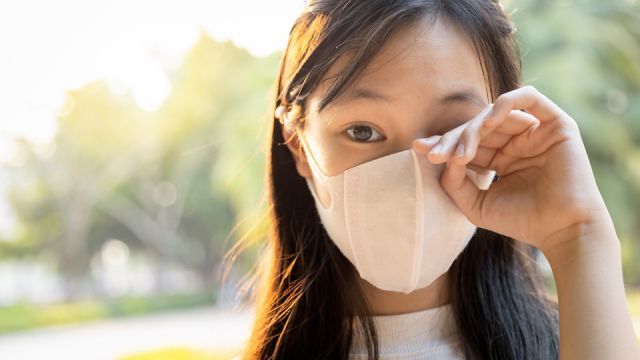
We all do it and often do it without even thinking about it. In fact, the average person does this up to 20 times an hour. It is a habit, and habits are very hard to break. In the course of a day, we touch a lot of surfaces like doorknobs, bathroom doors, railings, handles, tables, packages, and money. Surfaces such as these are prime hot spots for nasty viruses like COVID-19.
Health officials are sending out stern warnings for us to wash our hands properly and often. They are also warning us to avoid touching our faces as much as possible. But why?
Once we touch a surface and then touch our face, microbes on our fingers make their way into our noses, mouths, or eyes, which are all entryways for viruses and germs, including coronaviruses like COVID-19. But how do we stop touching our faces?
Why habits are so hard to break
Habits are, by definition, things “we don’t put a lot of cognitive effort into making happen,” according to clinical psychologist Lynn Bufka. It does take some pretty strong cognitive muscles to stop a habit in its tracks. It is not easy, and it often doesn’ happen overnight because habits are things that happen, for the most part, on autopilot. We are usually not even aware that we are doing something like shaking our leg, blinking excessively, pacing, doodling or…touching our face.
One of the best ways to break a habit is to establish a new and possibly better one in its place. Eventually, if you do practice the new habit enough, the old will become less dominant. It may not entirely go away, but it will not occur as frequently.
When it comes to touching our faces, our hair, and even our necks, developing a replacement habit is an excellent way to lessen the likelihood that we will spread unwanted bacteria and viruses and possibly get sick.
Here are a few ways to retrain yourself to help lessen the chance of becoming sick.
Become aware of what you are doing
Being more mindful of habitual behaviors like touching our faces is a must. When you feel yourself reaching for your face, become aware of your actions and what might be triggering you. Is your hair in your face? If so, try pulling it back. Are your eyes dry? If so, try rewetting drops. If you touch your face when you are nervous or stressed, try a stress ball instead. The whole idea is just to become aware of what you are doing and what is triggering the action. The simple act of putting your mind to it can help you to touch your face less frequently.
Talk to yourself
For sure, you don’t want people to think you are going crazy, but a little self-talk may be just what you need to stop touching your face. When you feel yourself reaching for your face, speak a code word for no like “healthy’ or any other word that will remind you that the behavior is not a good one. This helps to retrain your brain and engage your cognitive powers.
Keep tissues handy
Keep a pack of tissues with you at all times. When you feel the urge to touch your face, grab a tissue, and let it do the touching, not your finger. When you are finished, be sure to toss the tissue into the trash can.
Sneeze and cough into your elbow, not your hand
One reason we often reach for our face is because we want to cover our mouth before we sneeze or cough. Get into the habit of coughing and sneezing into your elbow instead of your hand. This helps in a couple of ways. First, it contains the cough or sneeze so that you won’t shoot germs all over the place, and second, it keeps your fingers from coming in contact with your face. It truly is a win-win!
Ask those around you to remind you when you touch your face
If you work in an office environment or somewhere with other people, ask them to remind you not to touch your face. Sometimes someone else calling us out can help develop a measure of accountability, and this will lead to us thinking twice before we touch our face when we are alone.
Use scented lotion on your hands
If you cover your hands regularly in scented lotion, you will become more aware of them when you bring them up close to your nose. The scent can act as a reminder to put your hands down and not touch your face.
Wear a mask
While most masks do very little to keep germs out, they will help you from having direct contact with your face. If you are having a difficult time keeping your hand away from your face, you might try a mask.
Stay well!
-The Alternative Daily

